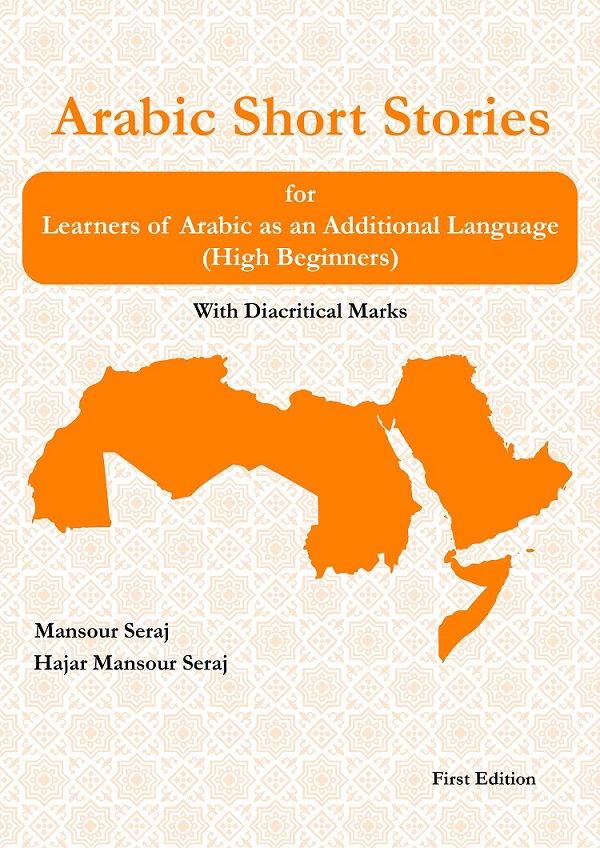We took this Arabic short story from a book written by Mohammed Al-Abrashi. The original story was written for native speakers of Arabic. It has been simplified, abridged, and slightly modified to make it suitable for learners of Arabic as an additional/foreign language. It is suitable for high-beginners and pre-intermediate learners.
فِي قَدِيمِ الزَّمَانِ، عَاشَ مَلِكٌ ظَالِمٌ. كَانَ الشَّعْبُ يَخَافُ مِنَ الْمَلِكِ؛ لِأَنَّ الْمَلِكَ يَقْتُلُ النَّاسَ. كَانَ الْمَلِكُ يُحِبُّ نَفْسَهُ كَثِيرًا. وَفِي يَوْمٍ مِنَ الْأَيَّامِ، قَرَّرَ الْمَلِكُ أَنْ يَبْنِيَ تِمْثَالًا لِنَفْسِهِ. أَمَرَ الْمَلِكُ الْعُمَّالَ أَنْ يَبْنُوا تِمْثَالًا ضَخْمًا. بَنَى الْعُمَّالُ التِّمْثَالَ. وَضَعَ الْمَلِكُ التِّمْثَالَ فِي الْمَيْدَانِ الْعَامِّ. يَقَعُ الْمَيْدَانُ الْعَامُّ فِي الْعَاصِمَةِ. نَظَرَ الْمَلِكُ إِلَى التَّمْثَالِ. كَانَ الْمَلِكُ سَعِيدًا جِدًا. قَالَ الْمَلِكُ: إِنَّه تِمْثَالٌ لِرَجُلٍ قَوِيٍّ وَوَسِيمٍ. اُنْظُرُوا إِلَيْهِ! وَضَعَ الْمَلِكُ قُبَّعَتَهُ فَوْقَ التِّمْثَالِ. أَمَرَ الْمَلِكُ النَّاسَ أَنْ يَنْحَنُوا لِلتِّمْثَالِ.
كَانَ النَّاسُ يَمْشُونَ أَمَامَ التِّمْثَالِ. كَانَ النَّاسُ يَنْحَنُونَ دَائِمًا. شَاهَدَ الْمَلِكُ النَّاسَ. شَعَرَ الْمَلِكُ بِالسَّعَادَةِ. وَفِي يَوْمٍ مِنَ الْأَيَّامِ، مَشَى رَجُلٌ فِي الْمَيْدَانِ الْعَامِّ. لَمْ يَنْحَنِ الرَّجُلُ لِلتِّمْثَالِ. صَاحَ عَسْكَرِيٌّ: أَنْتَ! أَيُّهَا الرَّجُلُ! لِمَاذَا لَا تَنْحَنِي لِتِمْثَالِ الْمَلِكِ؟
غَضِبَ الرَّجُلُ، وَقَالَ: وَلِمَاذَا أَنْحَنِي لِتِمْثَالٍ؟ هَذَا عَمَلٌ سَخِيفٌ! أَنَا لَنْ أَنْحَنِيَ أَبَدًا.
صَاحَ الْعَسْكَرِيُّ: سَوْفَ يَعْلَمُ الْمَلِكُ. الْمَلِكُ سَوْفَ يَقْتُلُكَ!
لَمْ يَرُدِّ الرَّجُلُ عَلَى الْعَسْكَرِي. عَادَ الرَّجُلُ إِلَى بَيْتِهِ. سَمِعَ الْمَلِكُ بِعِصْيَانِ الرَّجُلِ؛ فَغَضِبَ. قَرَّرَ الْمَلِكُ أَنْ يُعَاقِبَ الرَّجُلَ. أَرْسَلَ الْمَلِكُ عَسْكَرِيًّا إِلَى بَيْتِ الرَّجُلِ. كَانَ الرَّجُلُ يَعِيشُ فِي قَرْيَةٍ بَعِيْدَةٍ. كَانَ الرَّجُلُ صَيَّادًا. كَانَ الرَّجُلُ يَصِيدُ الطُّيُورَ وَالحَيَوَانَاتِ بالسِّهَمِ. كَانَ الصَّيَّادُ رَجُلًا فَقَيرًا. كَانَ الصَّيَّادُ يَعِيشُ مَعَ زَوْجَتِهِ وَاِبْنِهِ فِي بَيْتٍ صَغِيرٍ. أَمَرَ الْمَلِكُ الْعَسْكَرِيَّ أَنْ يُحْضَرَ الصَّيَّادَ وَاِبْنَهُ. أَخَذَ الْمَلِكُ اِبْنَ الصَّيَّادِ. أَمَرَ الْمَلِكُ اِبْنَ الصَّيَّادِ أَنْ يَقِفَ فِي الْمَيْدَانِ. وَضَعَ الْمَلِكُ تُفَّاحَةً فَوْقَ رَأْسِ الاِبْنِ. كَانَ الْمَلِكُ يَضْحَكُ. أَمَرَ الْمَلِكُ الصَّيَّادَ أَنْ يُصِيبَ التُّفَّاحَةَ بِسَهْمٍ.
رَفَضَ الصَّيَّادُ. صَاحَ الصَّيَّادُ: لَا يَا مَوْلَاي. سَوْفَ أُصِيبُ........................
To continue reading this story and others, you can buy our book from Amazon. The book is available on:
Amazon Australia
Amazon Brazil
Amazon Canada
Amazon France
Amazon Germany
Amazon India
Amazon Italy
Amazon Japan
Amazon Netherlands
Amazon Spain
Amazon UK
Amazon USA
Just search for the name of the first author (Mansour Seraj) on Amazon Search Bar.
